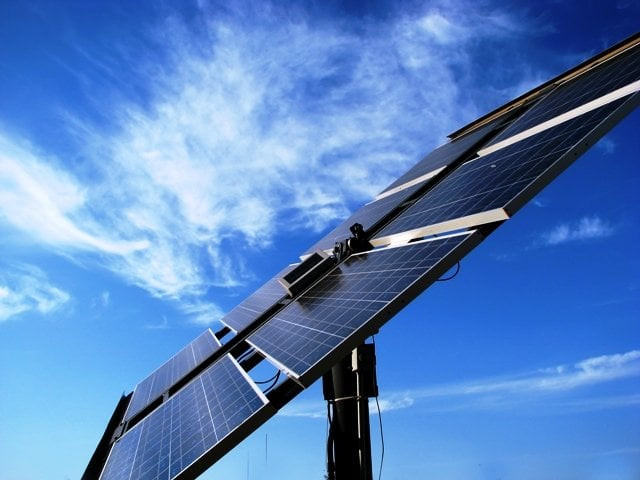Solar power to light up country
Amid crisis, Pakistan approves use of grid-connected solar energy.

The government has also reversed course and eliminated a 32.5% tax imposed on imported solar equipment in the country’s 2014-2015 budget. STOCK IMAGE
The government has also reversed course and eliminated a 32.5% tax imposed on imported solar equipment in the country’s 2014-2015 budget. The reversal aims to bring down the cost of installing solar panels.
The approval of net-metering – which allows solar panel purchasers to sell power they produce to the national grid – is a major breakthrough that could spur the use of solar energy and help Pakistan’s government cut power shortages in the long run, said Asjad Imtiaz Ali, chief executive officer of the Alternative Energy Development Board which is a public organisation.
Ali said the government decided to cut newly imposed taxes on the import of solar panels following pressure from business owners, the public and media.
And the decision to allow solar generators to sell their excess generating capacity means “consumers can now install rooftop solar systems and sell the extra energy to the national grid,” he said.
Safeer Hussain, a registrar at the National Electric Power Regulatory Authority, said consumers who intend to sell solar-generated electric power to a distribution company would need to register with his authority.
How it works
Net-metering is a billing mechanism that credits solar energy system owners for the electricity they add to the national grid.
If a solar household uses more grid power than it supplies to the grid from its solar panels, it would still be billed each month for that excess power.
But if it supplies more electricity than it uses in a month, then it will receive a credit against future bills or, be paid for the power on an annual basis, Hussain said.
“The tariff applicable for purchase of electricity from the consumer will be the same at which he has been billed by the company for electric power,” he said.
Nauman Khan, one panel importer and chief executive officer of Grace Solar Pakistan, said the changes could triple his solar imports in 2015.
Khan and the heads of two other solar companies plan to install rooftop solar on 100,000 homes in Lahore, Karachi, Rawalpindi and Islamabad in next two to three years, with Bank Alfalah Limited, a private bank, offering financing to buyers.
The State Bank of Pakistan and the Alternative Energy Development Board have recently allowed the bank for the first time to finance rooftop solar installation with home mortgages.
Fariha Mir, a senior manager at Bank Alfalah, said the financing up to Rs5 million (around $50,000) for rooftop solar installation would be launched in the first quarter of 2015 under the banner ‘Green Market’.
Mir said the bank would give loans to customers who want to convert their homes to solar energy. The program, which will allow buyers to borrow against their home’s value, will continue for five years, she said.
“The loan would be especially useful for people who otherwise can’t afford rooftop solar installation,” she said, adding the interest rate on the solar financing would also be comparatively low.
Published in The Express Tribune, January 7th, 2015.
Like Business on Facebook, follow @TribuneBiz on Twitter to stay informed and join in the conversation.


















COMMENTS
Comments are moderated and generally will be posted if they are on-topic and not abusive.
For more information, please see our Comments FAQ